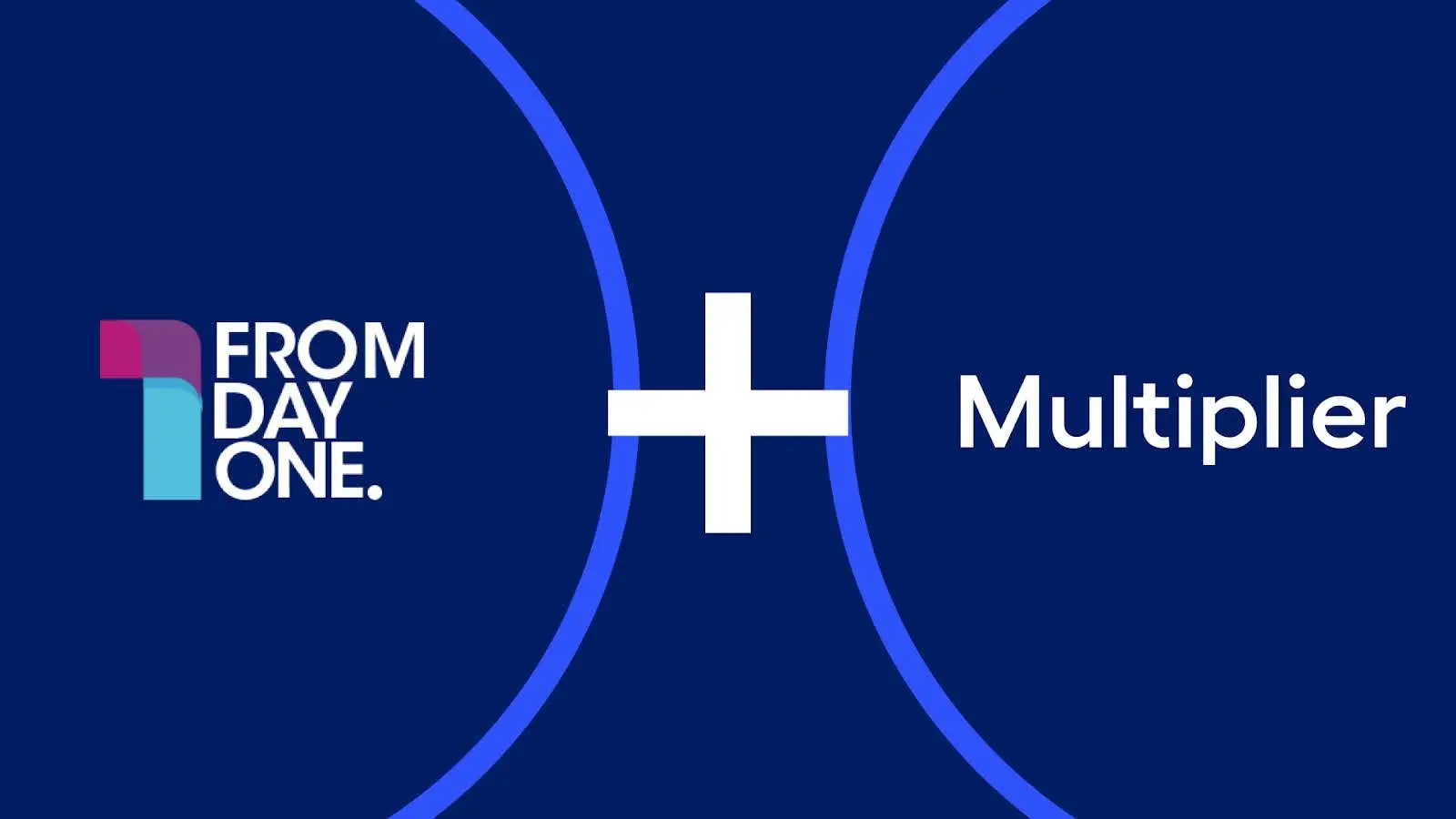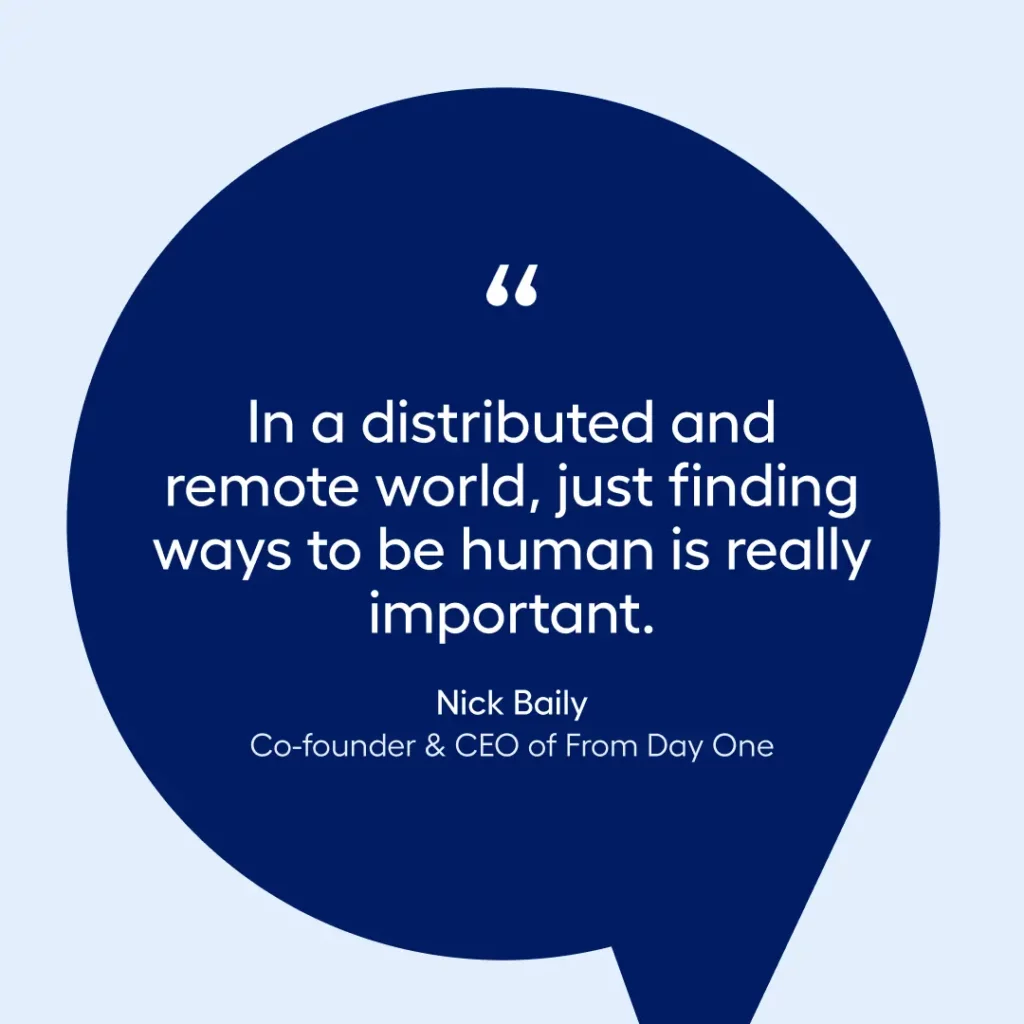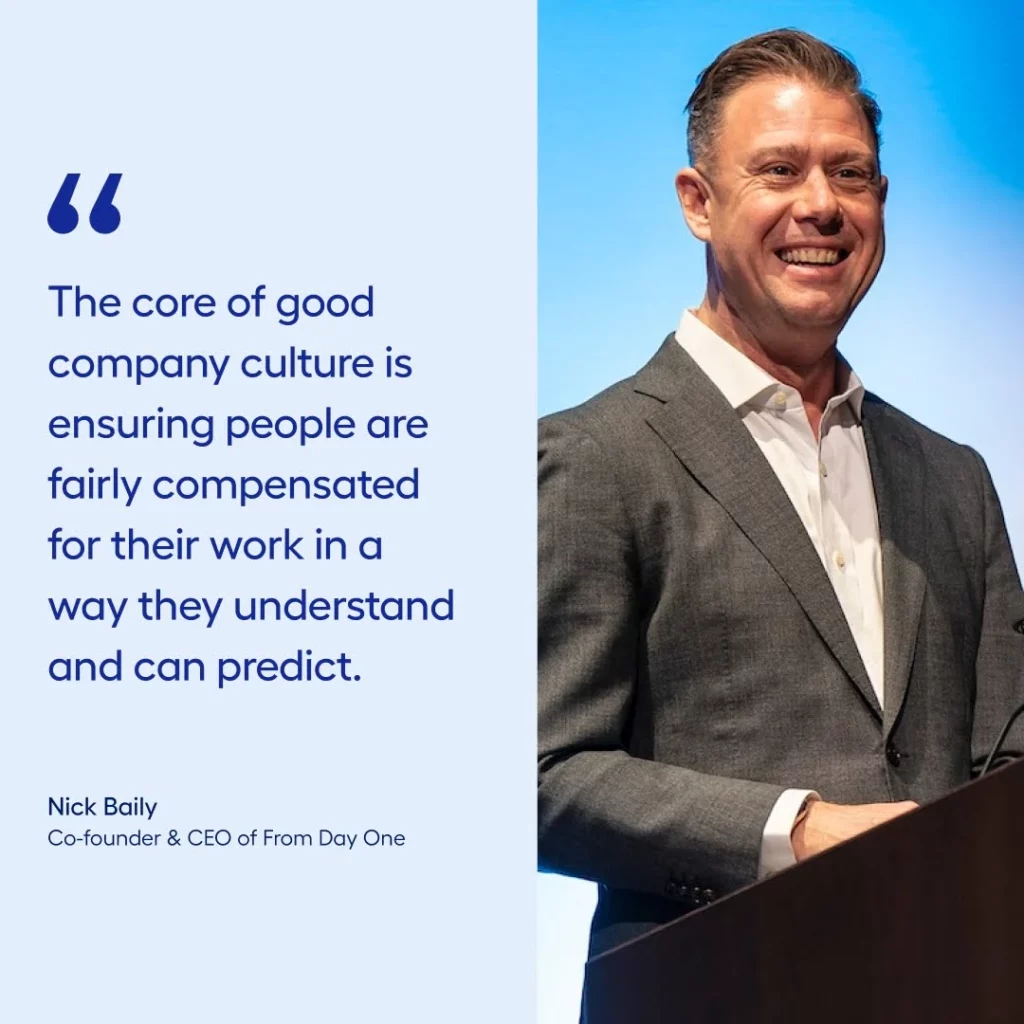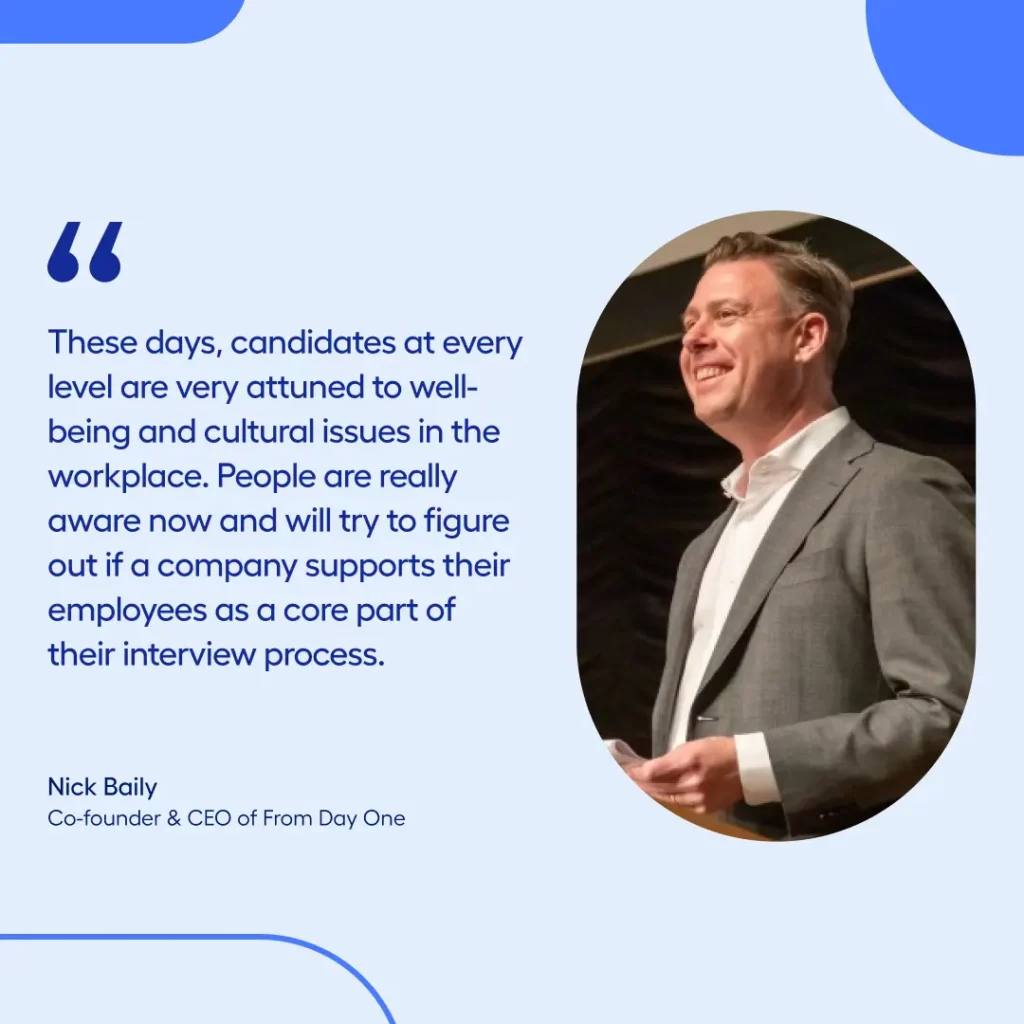As businesses evolve and competition grows, they seek new ways to improve productivity and increase efficiency. In this pursuit, the role of HR plays a crucial part in shaping the success of any company.
“(Productivity) is basically the human capital equivalent of profit or return on investments. There’s an argument that all of Wall Street, finance, and business is built around returns. In HR, you could argue that it’s all built around productivity.”
– Nick Baily, Co-Founder and CEO of From Day One
Productivity is a buzzword in HR circles right now, and “even though the concept underpins everything, the word productivity has emerged as a common phrase lately.”
However, a neglected aspect, gathering dust on the shelf, is employee well-being. Strange, considering well-being directly correlates with employee performance and productivity levels. A recent study also shows that the prevalence of mental health challenges continues to increase, being identified as the primary area with substantial long-lasting effects.
We recently had an opportunity to chat with one of our customers, Nick Baily, the Co-Founder and CEO of From Day One, a conference and media outlet that explores how companies can build well-grounded values into their business.
Let’s dive in…
Companies recognizing the value of well-being
Recognition is essential for many facets of the workplace, especially well-being. Whether it’s recognizing a person’s successes, struggles, diversity, or anything else—support and gratitude are powerful tools for productivity. Unfortunately, many employers still neglect well-being.
While there’s still a long way to go, change is on the horizon. “(Well-being) is certainly an area of increased attention. As we emerged from the pandemic into the hybrid work era, quiet quitting, or the ‘great resignation,’ one of the pillars of realignment was companies learning—the easy way or the hard way—that recognizing well-being is necessary to achieve productivity goals they have laid out.”
Well-being and culture play a vital role in productivity and retaining your best talent; failure in this regard has consequences. “Well-being contributes to retention, and struggling or unwell employees will seek solutions to their problems. If that solution isn’t available within the organization, they’ll look elsewhere.”
Employees don’t need organizations to reinvent the well-being wheel, but there must be appropriate support and resources to support people. This fosters a productive environment where workers want to succeed for themselves and the organization. Often, it’s a case of humanizing the employee-employer relationship. Or, as Nick says, “In a distributed and remote world, just finding ways to be human is really important.”
Cultivating a thriving culture
According to Nick, it’s crucial to “support employees as they are, where they are, and come to them to determine how to best suit their needs.”
From Day One and Multiplier both have distributed workforces. Of course, this presents various challenges, such as this very topic. Ensuring productivity while supporting employee well-being is crucial and requires balance to suit the needs of all parties. A huge part of achieving this is cultivating a thriving culture built on trust, clarity, and support—whether that’s recognizing employee successes, providing resources for well-being, or simply paying people on time.
When discussing the key to a thriving workplace culture, Nick says:
“The core of good company culture is ensuring people are fairly compensated for their work in a way they understand and can predict. They know what they’re asked and expected to do and feel like they know how to accomplish that. Again, that’s becoming more challenging in the remote era, so companies have to work extra hard to check those boxes.”
At Multiplier, we know better than most how challenging it can be to accommodate the needs of remote and distributed teams. It’s why our platform is so well-suited to these workforces and offers everything needed to hire, onboard, and pay employees. As Nick said, “The core of good company culture is ensuring people are fairly compensated for their work in a way they understand and can predict.”
We love our customers, but the needs, well-being, and quality of life of our employees are what shape us as an organization. Values matter and directly influence the health and productivity of workplace culture. These values drive us to provide our customers with the best possible service, as we appreciate the needs and frustrations of our own distributed teams. “When you feel supported and when the people you’re working with (and for) see you, that’s what contributes to culture.”
We couldn’t agree more, Nick.
Using technology to improve well-being
We live in a world where there are apps or software for everything, including HR. Or, as Nick says, “Every aspect of the employee-employer relationship probably has a software layer involved in it.” And he’s not wrong.
Take Multiplier’s EOR, for example; businesses can hire, onboard, offer benefits, and payroll global employees and contractors. Technology such as this plays a vital role in the current and future state of HR, allowing businesses to streamline vital processes, boost efficiency, and cultivate productive environments.
HR has evolved significantly in recent years, with technology and automation providing innovative tools to meet ever-changing business demands. When it comes to fostering employee well-being, it’s not only key to “be human” but also to offer an individualized approach to benefits and resources. Thus recognizing each employee’s unique requirements while avoiding an ineffective one-size-fits-all approach.
When discussing employee benefits and the need for a less generalized approach, Nick said, “The creative solutions in [HR] provide individualized attention, which is impossible without a well-defined technological backend. A trend we’re seeing is a large range of benefits being offered on a platform that enables self-selection and sorting.”
Support and diligence to give employees what they need to be happy and productive is worth its weight in gold. However, many business owners only see the benefits in initiatives that kick dollars and cents up the ladder.
Modern technology offers a wealth of opportunities for well-being resources and development programs: “L&D (learning and development) has a lot of potential with a lot of platforms working on it. I think the great hope is that AI will help with that.” This is where strong people leadership comes into play, ensuring workers have what they need to succeed in their careers and the company’s growth.
Supporting remote and distributed teams
During the pandemic, remote and distributed teams were the new norm as businesses began to wade into uncharted waters. And while there’s a strong movement by business leaders to return to the office, remote teams aren’t going anywhere. For many companies, it’s a productive way to work, offering freedom, flexibility, and cutting costs.
But, as Nick explains, well-being for remote workers isn’t as easy as one might think.
“Well-being for remote workers is way harder than in the real world. A lot of people have bought into the idea that remote is great because you can take your kids to the park at lunch, but it’s a really serious, deep challenge to productivity to be remote and distributed. It requires a lot of well-organized structure.”
For well-being to truly benefit remote workers, companies must be well organized and structured, with clear lines of communication. You must build it into the organization’s structure, not just provide an app or coaching tool to tick a box. If the well-being solutions your company offers aren’t effective or helpful, how can you expect workers to go the extra mile to help your business grow?
From Day One cultivate a positive and value-driven workplace environment, which revolves around the well-being of employees. When asked how their company promotes employee well-being for remote and distributed teams, Nick said:
“Finding ways to meet in the real world is very important to us. We do the best we can with that. We also have internal tools like pulse surveys, which people use to give feedback about how they’re doing, such as their emotional state. And it’s not always good news, so we try to be really responsive in that area.”
HR’s role in employee well-being and work culture
Whether it’s due to the evolution of the workplace or technological advances, HR as a practice and profession has changed a lot. The traditional view of HR is that they’re the people who handle compliance, taxes, payment, and legal issues. Of course, that’s still true, but leadership of people and a focus on culture are where many companies still miss the mark.
Nick made a great point in this regard, highlighting the need for leaders to adopt a “tenacious, resourceful approach you previously would’ve associated with solving customer problems, that an effective customer or sales leader would have. The no-stone-unturned approach to get our clients happy. That’s the approach you must also have in your people leadership.”
Platforms like Multiplier, which From Day One use, facilitate many of an HR team’s traditional responsibilities and tasks. Rather than fear the rise of machines or being made obsolete, businesses and their HR teams should see it as an opportunity to increase the focus on their employees and allow them to level up. As Nick said, people leaders should adopt the same urgency to keep employees happy and motivated as they do with clients.
The sales aspect is particularly important, as retention and recruitment are essentially selling an idea to an employee or candidate—“you have to convince people to join the organization and to stay, and you have to find a way to do it.” A paycheck just doesn’t cut it anymore. Organizations need to be empathetic and emotionally intelligent. Starting with the recruitment process.
Businesses and recruiters must consider that today’s candidates prioritize well-being because they understand its value to the employee experience. Nick reflected this sentiment—“These days, candidates at every level are very attuned to well-being and cultural issues in the workplace, dramatically so. People now are really aware and will try to figure out if a company supports their employees as a core part of their interview process.”
You see, a business’s approach to well-being doesn’t just affect employees’ lives. It impacts the organization’s ability to recruit and retain the best talent. People aren’t stupid, and the internet is an easy place to find information about potential employers. If your well-being efforts are lacking or the culture sucks, it can easily be exposed.
The same can be said for people leaders who fail to motivate, inspire, and communicate well with their teams. It all has an effect and will ultimately make people leave. According to Nick, empathy, or a lack of empathy, is a defining factor.
“Being aware of what’s happening is an empathy issue for people leadership. It’s something that you just have to have. That’s the way to be human; humans are empathetic, and we have the ability to put ourselves in someone else’s shoes. To foresee and understand a concrete model of the world that isn’t your own. That’s the route of modern intelligence and what it is to be human.”
TAKEAWAYS
As you can see, our chat with Nick offered a ton of insight into the current state of HR and well-being. Just in case you missed anything, here are some vital takeaways:
- Mental health challenges continue to increase, and businesses view it as a critical area with substantial, long-lasting effects.
- Well-being for remote workers is a serious challenge to productivity. Remote and distributed workforces require a well-organized structure to achieve and maintain productivity.
- Candidates are more likely to prioritize well-being and consider it as a defining factor when choosing jobs.
- Leading with empathy is crucial for company culture and well-being, with an increasing need to humanize the employer-employee relationship.
- Culture and well-being are invaluable for talent acquisition and retention, especially amid a global talent shortage.
Manage and grow distributed workforces with Multiplier
From Day One is just one of many customers who utilize our platform to manage and grow remote and distributed workforces. Streamlining processes and enhancing efficiency enables global teams to boost productivity while reducing the strain on HR professionals—allowing for greater investment in other essential areas such as employee well-being.
Want to know more about how Multiplier’s EOR platform can help your business? Talk to our experts.

Will Smith
Content Writer
Will is a Content Writer at Multiplier. With a background in technology journalism, he is passionate about busting jargon, getting to the heart of complex topics, and writing pieces you'll enjoy reading.








